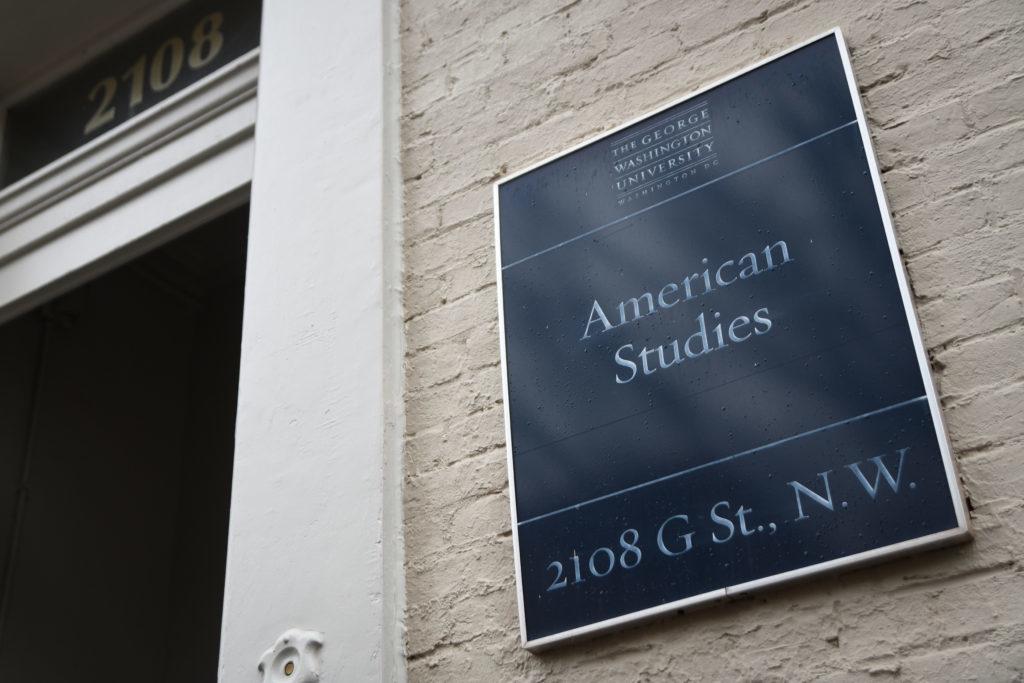A new spring course is taking students back 50 years to a time when student activism reached a fever pitch on everything from civil rights to the Vietnam War.
Three professors from different programs – the history department, American studies department and Museum Studies program – co-organized a one-credit, pass/fail course this semester deemed the 1968 Initiative. Faculty involved in the course said it examines key moments from that turbulent year at a time of contemporary political upheaval that rivals 1968.
Gayle Wald, the chair of the American Studies department and one of the course instructors, said the class will encourage a younger generation to discuss the continued relevance of “a year of tremendous importance and upheaval.”
“If we’re exploring the legacies of 1968, I wanted young people to be a part of that discussion,” she said. “I saw this as a way of really including GW undergraduates in larger, open-ended conversations.”
Key aspects of student activism in 1968 included civil rights – with the emergence of the Black Panther Party following Martin Luther King Jr.’s assassination – and the movement against the Vietnam War. Today, activists – including GW students – are taking to the streets in similar demonstrations including women’s marches and police brutality protests.
Wald said the course will meet on four Friday afternoons this semester for “accessible and casual” discussions covering 1968 student activism, music, feminism, beauty culture and the Poor People’s Campaign – a Martin Luther King Jr. initiative for greater economic equality.
Each of the 90-minute sessions – held Feb. 2, March 2, March 30 and April 20 – will include guest speakers to help guide the free-form discussion. Speakers will range from history and music professors to museum curators, public historians and graduate students. The upcoming March 2 session will focus on music in 1968.
“We might talk about albums, we might talk about trends,” Wald said. “It’s going to be a real free-willing discussion.”
Students in the course will be required to write reflections based on classroom discussions and write a response paper based on a book of their choosing connected to a cultural or political aspect of 1968.
“1968 is timely for university students in particular because it was a year in which university students made their voices heard – not just in the United States but globally,” Wald said.
There are no prerequisites or major requirements to join the course. Wald said all students with “curiosity and interest” were allowed to register. The course is now closed, with 11 students enrolled.
“We wanted the bar for entry to be low. No one had to be an ‘expert’ to participate,” she said.
Katrin Schultheiss, an associate professor of history and chair of the department who is involved with the course, said discussing and learning from 1968 is particularly pertinent in the current social and political climate, which echoes 1968 in many ways – from anti-establishment protests in D.C. to marches against police brutality in places like Ferguson, Mo.
“The broad engagement of large swaths of the population of 1968 debating the future of American society finds powerful echoes today even if historical circumstances have changed significantly in the last half century,” she said.
Given the role college students played in the pivotal events of 1968, teaching the course at a university like GW would help educate current students on the difference they can make while still in college, Schultheiss added.
“Because so much of the activism of 1968 was driven by college students, I think it is particularly important for students today to see that their own activism has a long history,” she said.
Laura Schiavo, a professor of museum studies and one of the course instructors, said it would “be a waste” for GW to not mark the 50th anniversary of a year with such historical importance.
“We are hoping to cultivate an intellectual community, across disciplines and fields, in the politics and culture of 1968 both for their effects on the moment, and their resonance today,” she said.





